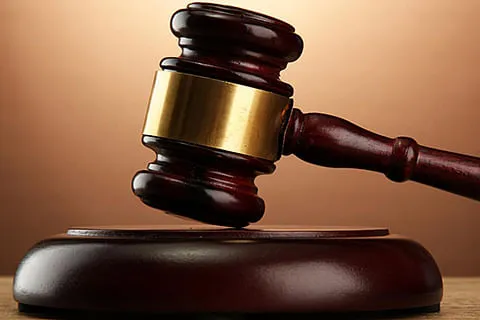The High Court on Tuesday directed governments of Jammu and Kashmir, and Ladakh to enforce stringently their orders and notifications on disclosure of travel history, quarantine and isolation to contain covid-19.
Hearing two PILs including one on its own motion, a divisionbench of Chief Justice Gita Mittal and Justice Rajesh Bindal ordered that thoseviolating the government orders on disclosure of travel history should be
strictly punished in accordancewith law.
The bench heard the matter viavideo conference. It issued the directions after senior additional advocategeneral Amit Gupta at Jammu wing and additional advocate general Shah Aamir atSrinagar informed the court about the steps taken by the government to controlthe disease.
The court observed that judicialnotice can be taken of several complaints being made in the electronic and theprint media regarding the persons concealing their foreign travel history.
“Even though they are required todisclose their travel history, they are concealing it in order to escape themandatory quarantine,” the bench observed.
Some of such persons, the courtobserved, have been found to be infected. “Huge public resources have beenexpended on tracking, not only these persons, but their several contacts duringthe period up to their detection,” the court said and directed the authoritiesof Jammu and Kashmir as well as Ladakh to enforce their notifications,instructions and orders regarding all disclosures including the travel history,quarantine and isolation stringently.
“All authorities of the Union Territoriesshall take strict measures to ensure that all requirements are strictlyenforced,” the court said, underling that violation of any governmentnotification or breach should be strictly punished in accordance with law.
In another direction, the courtordered the Secretary PHE to ensure an equitable distribution of water to allresidents of the Union Territory of Jammu and Kashmir. “Similar examination maybe undertaken in the Union Territory of Ladakh as well.”
The court direction followedsubmissions by Monika Kohli, Amicus Curiae, that there was dire need ofcontinuous availability of water in order to ensure the hygiene for preventionof the infection during the quarantine.
Kohli pointed out that the PublicHealth Engineering Department was responsible for the maintenance of the rosterfor water supplies in Union Territory. She submitted that the roster isextremely unequal and disproportionate to the requirement of the colonies andrequires to be rationalized.
Meanwhile, Ashok KumarSrivastava, Chief General Manager, BSNL J&K Telecom Circle, Jammu-12 waspresent in the court. He submitted a report, stating that video-conferencingthrough lease lines between the two Juvenile Justice Boards is the optimal solution.
“On this aspect, for want ofapproval of the financial estimates conveyed to the (mission director) ICPS,this matter was not proceeded with further. As per the report submitted by theBSNL, the estimates were conveyed to the Social Welfare Department on 15thNovember, 2018,” the court said, adding, “It cannot be denied that the BSNLwould be the expert agency, whose opinion would bind the consideration by theauthorities.
“It is also common knowledge thatdependence on broadband connectivity for video-conferencing is not an optimalsolution and the same is often jeopardised on account of connectivity issues.
“Srivastava also informed that hewould have the estimate which was submitted on November 15 last year,re-examined and fresh estimates would be submitted to the Mission Director,ICPS within two days. Let the same be so done. The same would be examined atthe earliest,” the court added.The court also directed that State InformaticsOfficer of the NIC, Jammu and Kashmir shall remain present in court on the nextdate keeping in view the issues regarding courts, JJBs and Observation Homes.






